Wearing Jeans To a Job Interview: Key Takeaways
- Whether jeans are appropriate depends on the industry, role and company dress code; casual and creative workplaces are more lenient.
- Opt for dark, well-fitting, high-quality jeans paired with professional tops, blazers and polished shoes to create a balanced, polished look.
- When in doubt, consider alternatives like chinos, dress pants, or skirts to ensure a more traditional professional appearance.
- For high-stakes or formal industries, sticking to dress pants or suits is safer to make a strong first impression.
Today, workplace attire is more flexible — especially in certain industries — so figuring out what to wear and what not to wear for an interview isn’t as straightforward as it used to be.
So, can you wear jeans to a job interview? The short answer — it depends.
In this article, we'll explore when jeans are appropriate for job interviews, how to style them professionally and how to determine if they fit the company’s dress code.
How To Assess If You Can Wear Jeans to an Interview
Jeans aren’t always the best choice for an interview, but in the right circumstances, they can work to your advantage.
Here are some tips for determining when jeans might be a good option for your interview:
Consider the industry you’re interviewing for
In industries that have embraced a casual or creative culture, jeans are often seen as a standard.
Tech companies, startups, creative agencies and some hospitality establishments are typically more laid-back when it comes to dress codes.
For example, if you’re interviewing for a Bartender position at a relaxed pub, jeans might be perfectly acceptable.
Many establishments in the hospitality industry, especially those in casual dining or craft cocktail bars, embrace comfort and style, where a smart pair of jeans can fit right in.
On the other hand, if you’re interviewing for a position at a corporate bank, jeans might be seen as too casual.
In such environments, professional attire, like a suit or tailored trousers, is expected to convey the seriousness and formality of the industry.
Think about the role you’re applying for
The nature of the job itself can also influence whether jeans are a good option.
For roles that prioritize creativity, personal style or comfort — such as positions in design, tech or even customer service — jeans can help you fit in with the company culture.
In the hospitality industry, Servers at casual dining spots or even upscale coffee shops usually go for a more relaxed look. This role focuses on balancing comfort, personal style and professionalism.
However, for more high-profile roles, such as a Restaurant Manager at an upscale establishment, it’s important to dress more formally. In these cases, business casual or business professional attire is a safer choice than jeans.
Research the company’s dress code
Before your interview, take some time to research the company’s dress code. Check out photos of employees on the company’s website or social media pages to get a feel for how people typically dress.
If employees are often in casual or business-casual attire, you might be safe wearing jeans to your interview.
However, if you notice that most employees wear formal business attire, such as suits or dresses, it’s a good idea to opt for more professional clothing so as not to appear underdressed.
How To Make Jeans Work for an Interview
So, you've decided that jeans are a good option for your interview. Now, the next step is to select an appropriate pair, either from your current wardrobe or by purchasing new ones.
Choosing the right pair is key; not all jeans will give off the impression you're aiming for.
Here are a few pointers to help you make the best choice:
1. Go for dark, tailored jeans
Dark-wash, well-fitting jeans are your best option for an interview. They give off a polished, professional look compared to lighter washes or casual, distressed denim.
Also, make sure to stay away from jeans that are too tight, too loose or worn out. These can appear too casual or unkempt, which is not the impression you want to give in an interview.
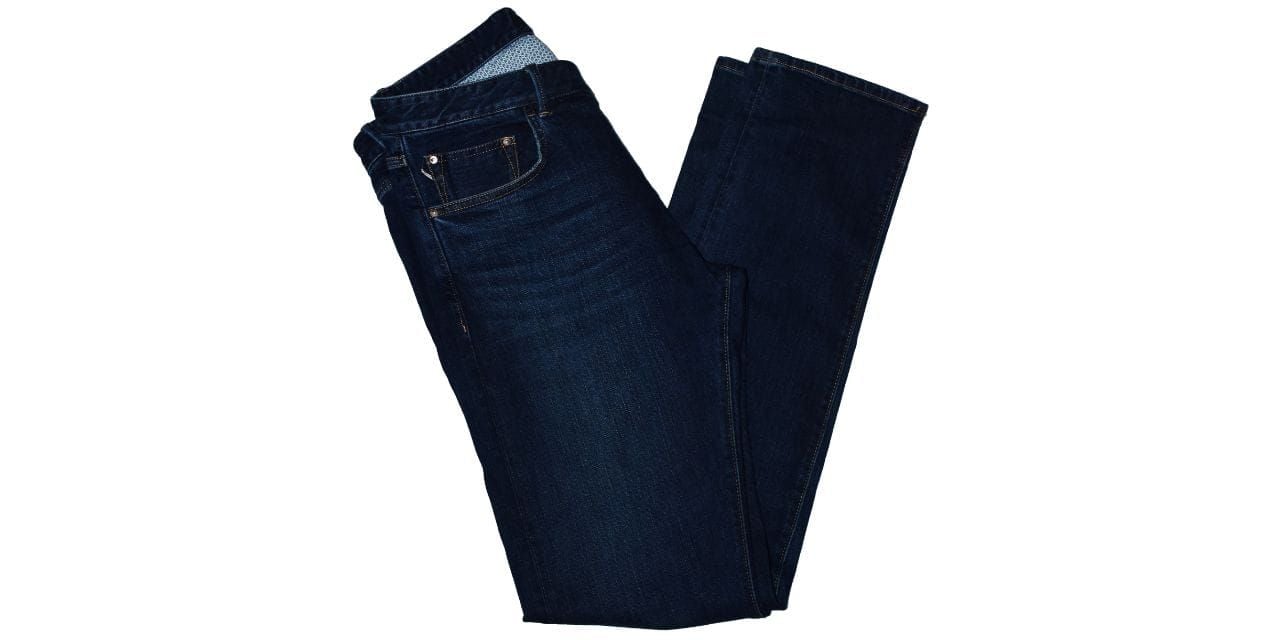
2. Choose high-quality denim
The quality of the denim matters just as much as the fit. High-quality, structured denim with a bit of stretch looks intentional and refined, making it perfect for an interview.
High-quality jeans will have a smooth, even texture and should hold their shape without sagging or stretching out too quickly.
Also, pay attention to the stitching — strong, even stitching along the seams is a sign of durability.
Lastly, avoid jeans with embellishments because they can make your outfit appear too casual or disorganized.
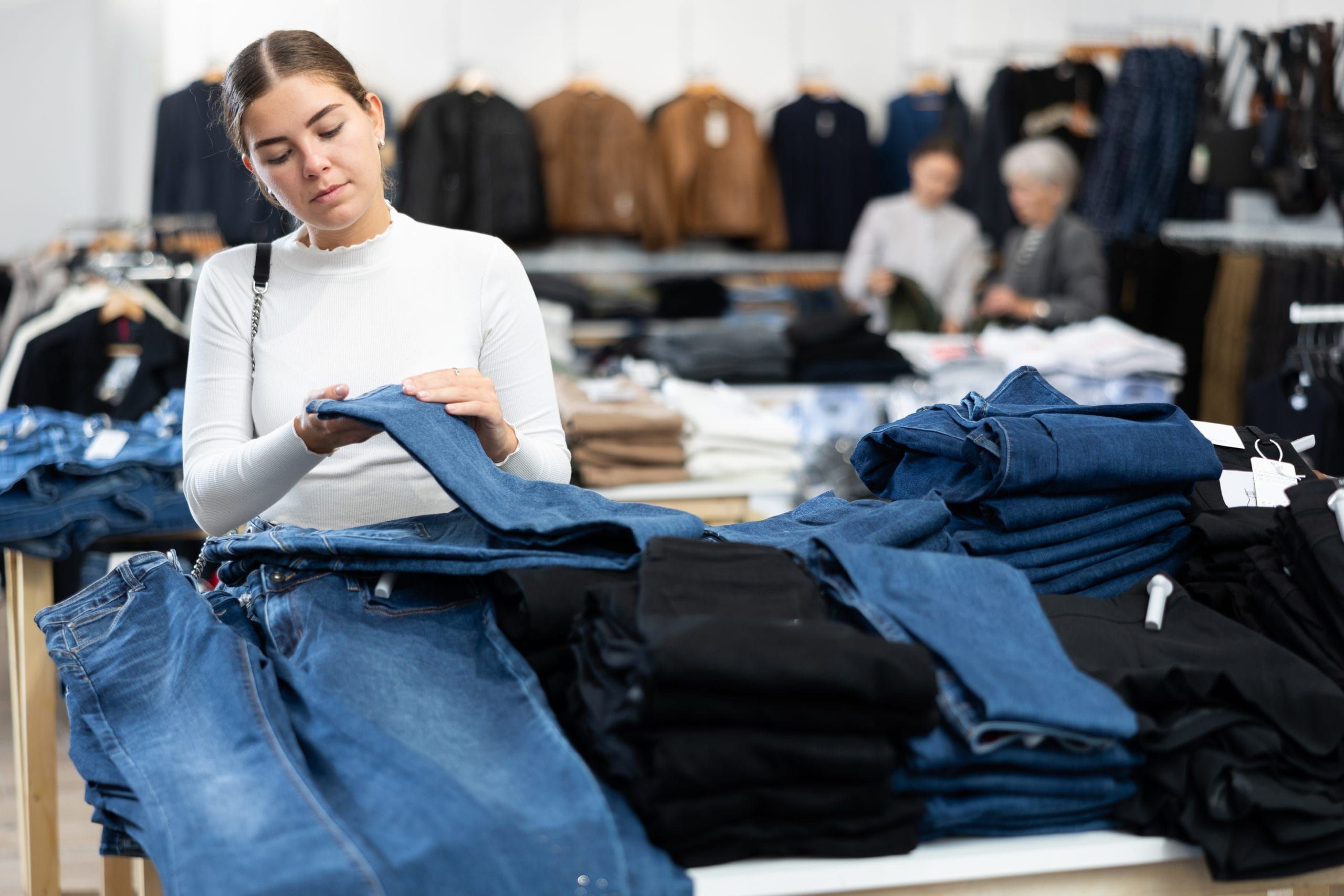
3. Pair jeans with more professional-looking pieces
Even the most polished jeans need to be paired with the right pieces to elevate your look.
A fitted blazer, button-down shirt or stylish sweater can help create a balanced, professional outfit.
Avoid pairing jeans with overly casual tops like t-shirts, hoodies or tank tops, which may undermine the overall professional tone you're aiming for.
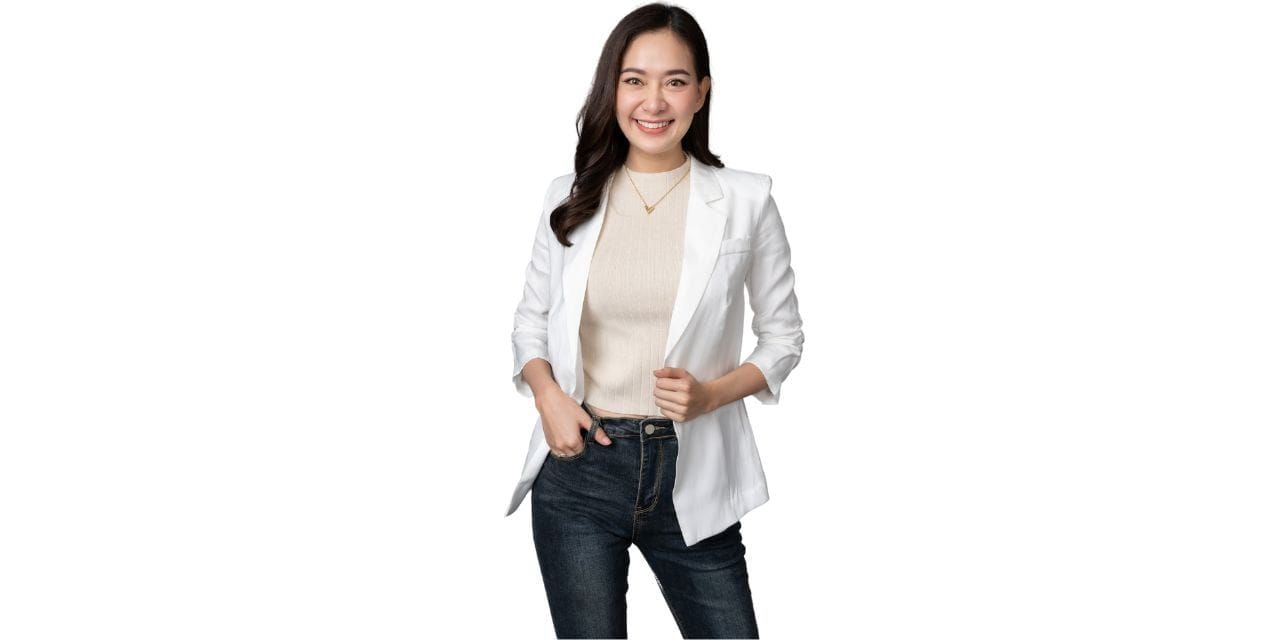
Accessories can also make a difference. Opt for simple, elegant pieces like a watch or a leather belt to add a touch of sophistication.
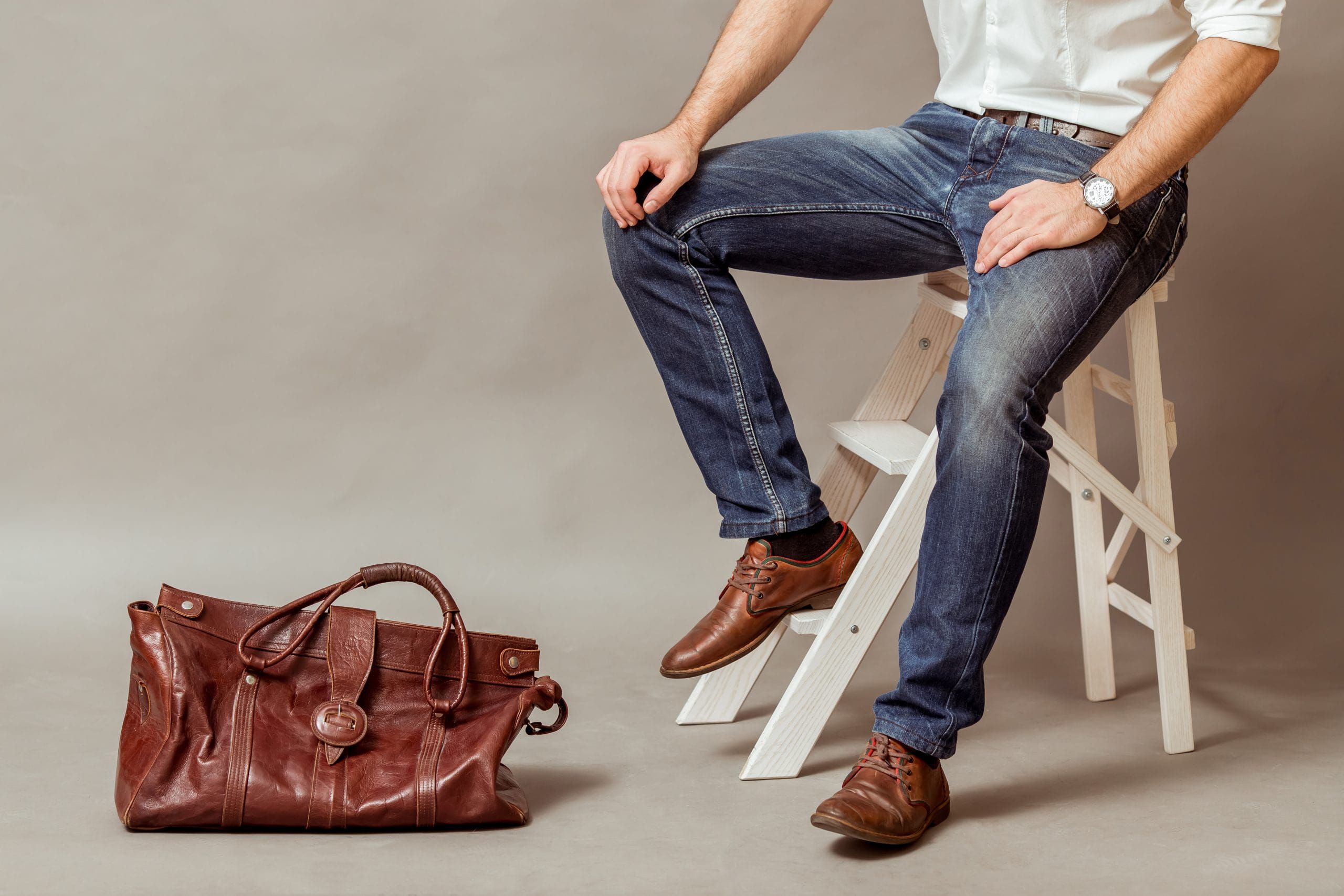
As for footwear, choose closed-toe shoes such as loafers, flats or even polished boots; avoid sneakers or sandals that may appear too casual. Also:
Alternatives to Jeans for Interviews
If you're uncertain about wearing jeans to an interview, consider these alternatives:
- Chinos or khakis: These offer a balance between formal and casual, making them suitable for various interview settings.
- Dress pants: A classic choice that conveys professionalism across different industries.
- Skirts or dresses: For a polished look, opt for knee-length skirts or dresses in neutral tones.
Interview Settings Where Jeans Don’t Work
There are still interview settings where a more traditional approach is expected, and wearing jeans is frowned upon.
For example, in industries like finance, law and consulting, or for executive roles, business attire is still the standard.
In these environments, wearing jeans could be seen as unprofessional or out of touch with industry norms. To make the right impression, it’s better to choose dress pants, a suit or a skirt.
Similarly, even in more casual industries, high-profile or high-stakes interviews — especially for managerial or leadership roles — might call for a more polished appearance.
Unless you’re sure that the company’s dress code is relaxed for these positions, it’s safer to go with business attire.
If you’re unsure about the dress code, it’s safer to leave the jeans at home. Remember, it's always easier to dress down once you’re on the job than to try to recover from a poor first impression.
Dress Codes Have Evolved — So Has Interview Attire
Gone are the days when every workplace had strict guidelines on business attire.
Many industries today have embraced “business casual” as the standard, with jeans becoming an everyday choice in offices, creative spaces and even some executive settings.
This shift is also clear in fields like hospitality, where casual restaurants and bars often have a relaxed dress code for employees.
Such establishments focus more on employees’ comfort and personality rather than requiring formal business attire.
Just as workplace dress codes have become more flexible, interview attire has also evolved.
For many companies, especially those with a casual culture, showing up in jeans may not raise an eyebrow — in fact, it could even show that you understand and align with the company’s vibe.
Still, it’s important to strike the right balance between looking polished and fitting the culture of the workplace.
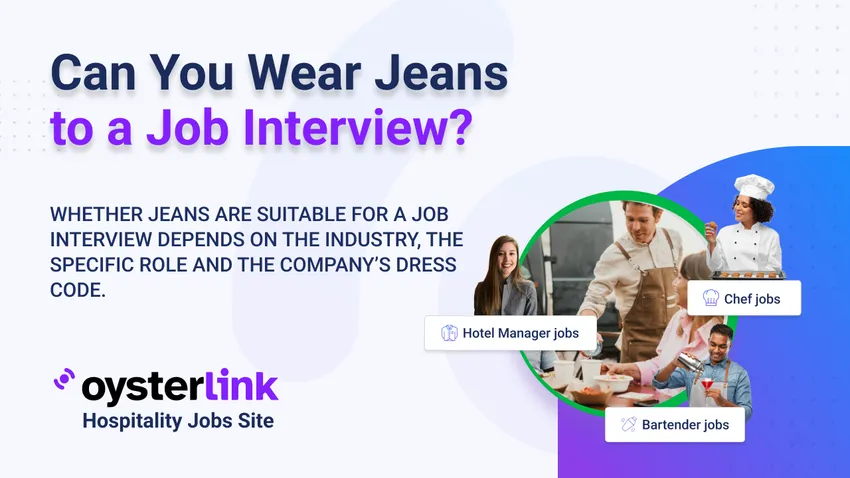



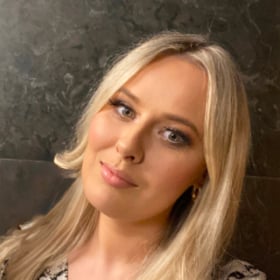





Loading comments...